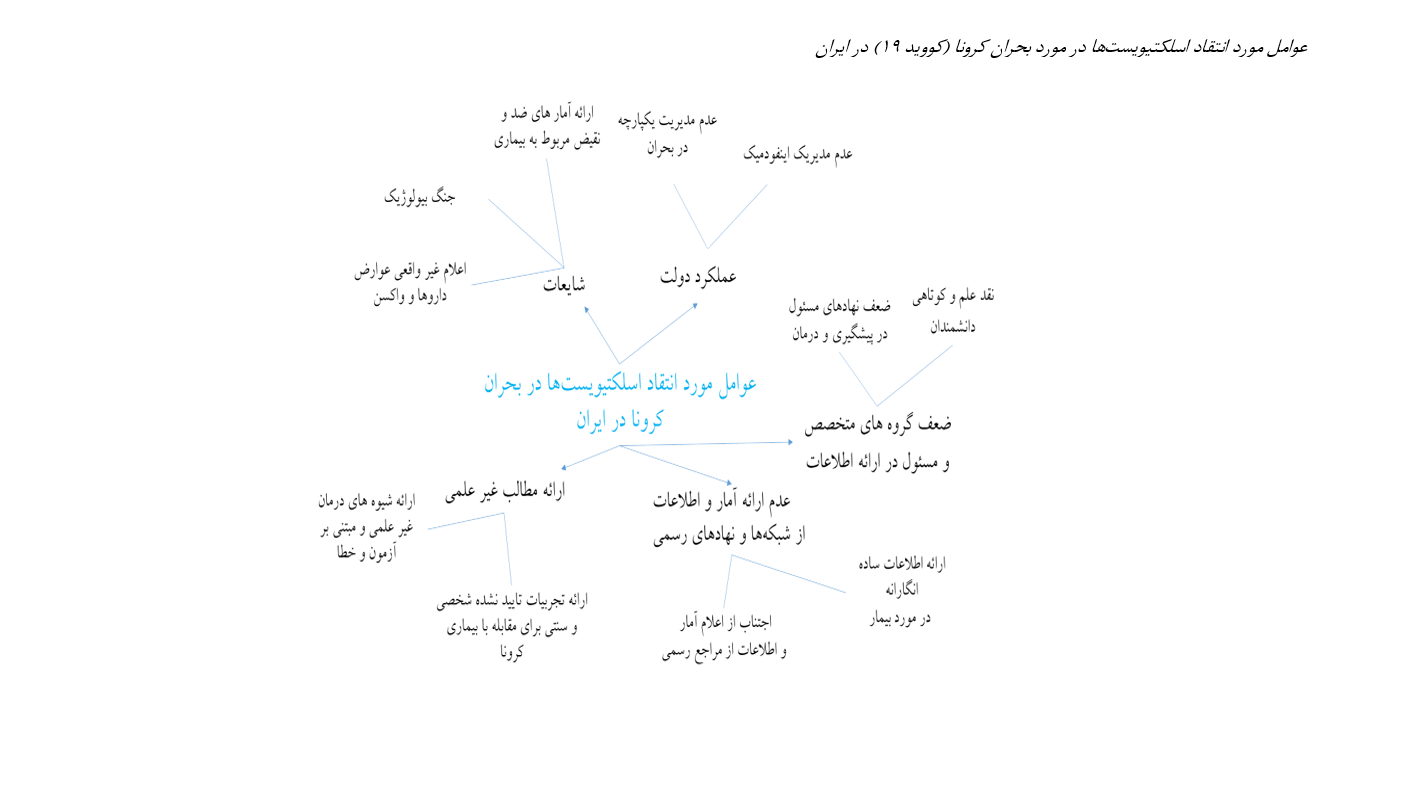Critical Factors of Slacktivists (Virtual Supporters) Regarding the COVID-19 Crisis in Iran
Keywords:
Critical factors, slacktivists, crisis, COVID-19, coronavirusAbstract
The physical distancing during the COVID-19 pandemic led individuals to increasingly utilize modern communication technologies, particularly social networks, where slacktivists, as users of these networks, expressed their concerns. The aim of this study is to identify the primary, secondary, and organizing themes of the critical factors raised by slacktivists concerning the COVID-19 crisis in Iran. The approach of this research is qualitative, with data collected through exploratory interviews until theoretical saturation was reached, involving 10 experts in communication and health. The thematic analysis method was used for data analysis. Six organizing themes were identified: "government performance, lack of statistical and informational dissemination from official networks and institutions, dissemination of non-scientific content, rumors, lack of oversight on individuals' activities in cyberspace, and the weakness of specialized and responsible groups in providing accurate information." Slacktivists specifically criticized the government's failures in controlling the spread of COVID-19. They pointed out that some countries were able to respond more effectively to the pandemic. These critiques are grounded in the belief that structural challenges in the health and social systems, along with the weakness of responsible institutions in providing accurate information, contributed to the inadequate control of the COVID-19 crisis.
Downloads








